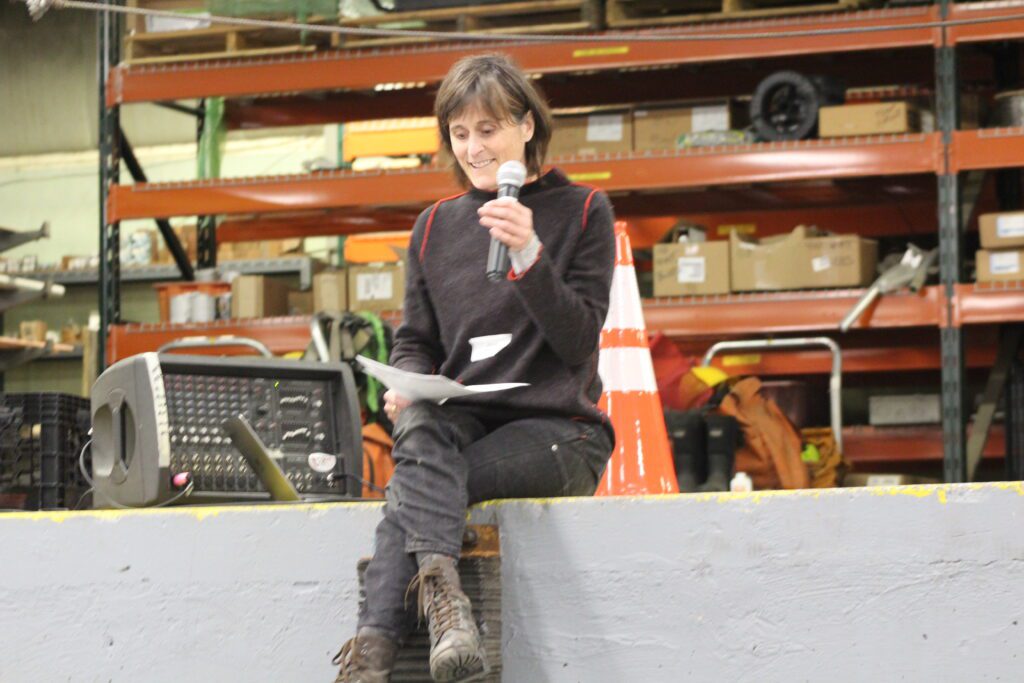Erica Heilman of Rumble Strip podcast delights membership with big questions

A correction to our last issue: Erica Heilman is not from Calais. She’s from East Calais.
Electricity–and now broadband–both reached neighboring Maple Corner first, she reminded WEC members; East Calais residents wait a little longer. She was joking, sort of.
Heilman claimed to have a deep need to be “from” somewhere, she said, so perhaps it’s not surprising she chose to live in a small town so rugged and with such long family histories that people self-identify by their unincorporated-community-of-residence. But if the identities of East Calais and Maple Corner are so different, then is there a Calais identity? And can there ever be a Vermont identity?
Who cares, as long as we listen to each other? Part of the appeal of Rumble Strip is Heilman’s anarchic and inclusive approach to identity. Heilman is attached to the notion of belonging, but Rumble Strip rejects any imposed sense of what it means to be “from here,” whether here is East Calais or Vermont, and whether the imposed concept is “covered bridgified” or wears mud boots. Instead, the big picture of Rumble Strip emerges in compound form, interview by interview, idea by idea, show by show, because individuals shape community as much as the other way around.
Heilman kicked things off with an admission, which is instructive about the East Calais identity, or maybe just her. “I feel like I have to come clean. I have a hot tub.” she blurted. “You can judge me.”
It was a chilly night, and a sweatered-up member in the audience mumbled, “Or visit you!”
Heilman expanded the question of identity to the notion of community, because, she observed, discourse has grown less and less civil since 2016, and human interactions have shifted so much more online and so much less in person.
But interacting with other people in public spaces is key to our happiness and survival, she suggested. It happens in floor votes at Town Meeting: arguing against the ballot system, she said “I think the thought is, you’ll have more democracy if you get people in booths privately to vote. But you lose the opportunity to disagree civilly in public.”
It happens in the dozens of committees and boards any Vermonter is eligible to join or attend: “When you go to your cemetery commission meeting, you’re with people who are not like you, who you may not even like that much. And that’s a skill set.”
And it happens in unremarkable encounters. She described a mock exchange that might happen at a grocery store, two people talking about going to see the school play. These conversations aren’t a big deal, but they make you feel good, she explained.
Heilman often describes her hope, with Rumble Strip, is for people to fall in love with strangers. Her interviews become a conduit for the kind of low-key familiarity that stitches together a community. If we’re not bumping into each other enough anymore, Heilman does it for us, and we can listen, and appreciate the human at the other end of the microphone.
“When the pitchforks come out, it’s hard to take them up against the lady in the grocery store. Because she’s going to the school play,” she explained. “And that’s a pragmatic reason to fall in love with strangers: to prevent civil war.”
Several hundred of her neighbors, some but not all of them strangers, applauded heartily.
